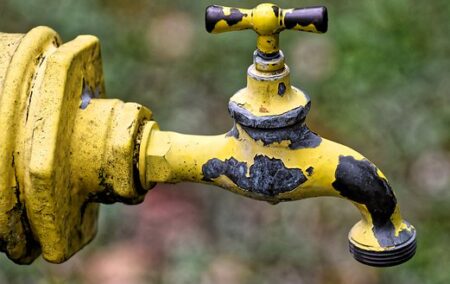Several measures now being implemented to avert the risk of Gauteng reaching Day Zero in its mounting water crisis align with recommendations advocated by the IRR – but more is needed from the government to confront the long-standing deficiencies behind the crisis.
So says the Institute of Race Relations (IRR).
In a statement, the Institute points out that, just two weeks ago, its latest report, Gauteng’s Water Crisis, emphasised the urgency of confronting the region’s water crisis, offering practical recommendations to immediately resolve leakages responsible for 35% of Gauteng’s treated drinking water being lost every day.
“However, as the crisis stems from years of mismanagement, underinvestment, and corruption, coming to grips with the problem is going to require much more.”
Says IRR researcher Anlu Keeve: “The IRR has long warned that Gauteng’s water infrastructure is a dripping tap.”
Every day, 48% or roughly 2.5 billion litres of Gauteng’s water supply is lost to leaks, theft, and dilapidated infrastructure, and Rand Water is already extracting at the maximum abstraction level.
“This means supply is limited and what is available is being wasted. Against this stark sketch of the crisis, Minister of Water and Sanitation Pemmy Majodina insists there is no crisis.”
Says Keeve: “Gauteng residents are dangerously exposed as the impending water crisis, a story of invisible losses and visible neglect, rapidly unfolds. Municipal mismanagement and misuse of water revenues are at the core of Gauteng’s water crisis.”
Notably, several measures now being implemented align with IRR recommendations. Keeve points out that, for example, 15 pressure-reducing valves (PRVs) have been retrofitted recently, with 45 additional installations in planning. Johannesburg Water has also expanded repair teams and increased weekend response capacity.
She warns, however, that the situation is far more dire than is implied by Majodina’s assurance recently that “we have enough water”.
“It has long been understood that Gauteng, being an inland province, requires water to be pumped to its municipalities. The challenge is not the logistics – it’s the ongoing failure of those in charge to make sure the system works; fixing leaks, stopping illegal connections quickly, and keeping up with regular maintenance,” says Keeve.
“It is time for the Minister to stop shifting blame and making excuses. One minute it is the municipalities who failed, the next it is residents for not harvesting enough rainwater, and when all else fails, it is the heatwave’s fault.
“The truth is that a department is only as strong as the leader at its helm. The IRR stands ready to support citizens in holding leaders accountable, and in ensuring promises of new reservoirs, PRVs, and plans to desalinate sea water do not leave us high and dry,” concludes Keeve.
The IRR’s Gauteng’s Water Crisis report can be found here.

